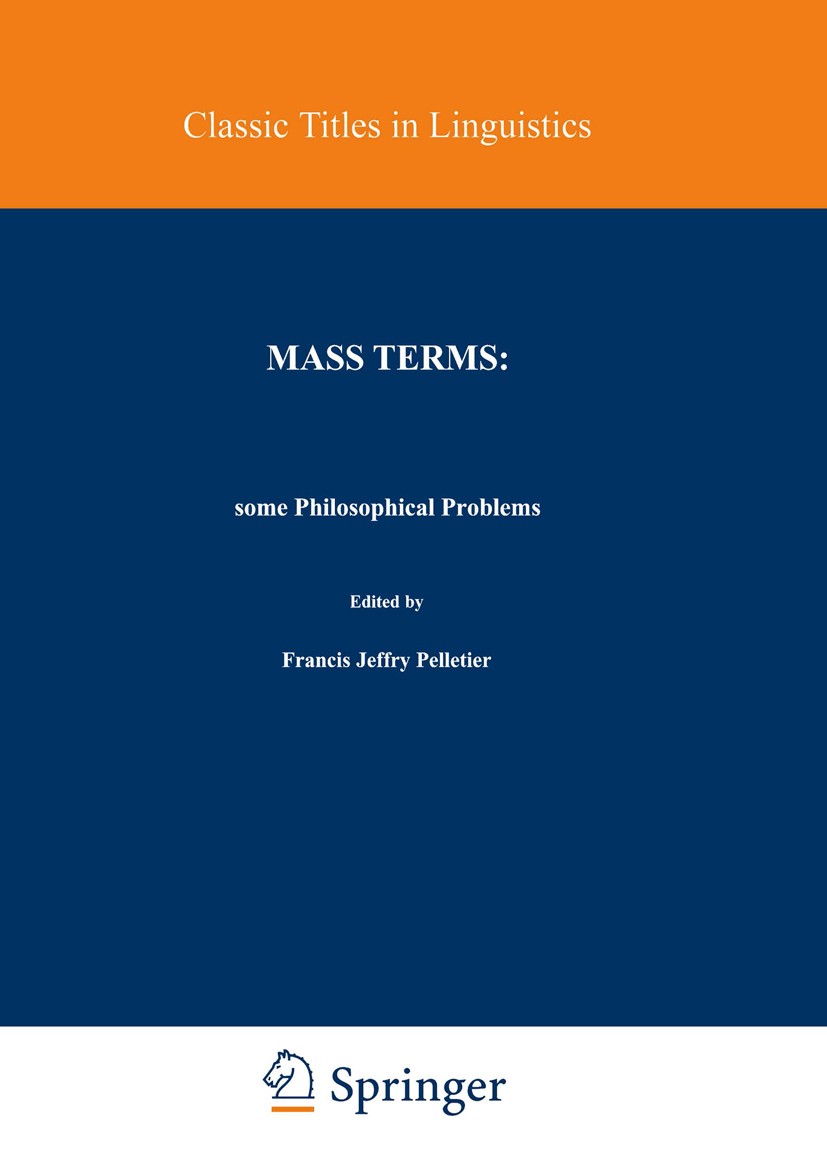| 書目名稱 | Mass Terms: Some Philosophical Problems | | 編輯 | Francis Jeffry Pelletier | | 視頻video | http://file.papertrans.cn/626/625291/625291.mp4 | | 叢書名稱 | Studies in Linguistics and Philosophy | | 圖書封面 |  | | 描述 | I. MASS TERMS, COUNT TERMS, AND SORTAL TERMS Central examples of mass terms are easy to come by. ‘Water‘, ‘smoke‘, ‘gold‘, etc. , differ in their syntactic, semantic, and pragmatic properties from count terms such as ‘man‘, ‘star‘, ‘wastebasket‘, etc. Syntactically, it seems, mass terms do, but singular count terms do not, admit the quantifier phrases ‘much‘, ‘a(chǎn)n amount of‘, ‘a(chǎn) little‘, etc. The typical indefinite article for them is ‘some‘ (unstressed)!, and this article cannot be used with singular count terms. Count terms, but not mass terms, use the quantifiers ‘each‘, ‘every‘, ‘some‘, ‘few‘, ‘many‘; and they use ‘a(chǎn)(n)‘ as the indefinite article. They can, unlike the mass terms, take numerals as prefixes. Mass terms seem not to have a plural. Semantically, philo- sophers have characterized count terms as denoting (classes of?) indi- vidual objects, whereas what mass terms denote are cumulative and dissective. (That is, a mass term is supposed to be true of any sum of things (stuff) it is true of, and true of any part of anything of which it is true). Pragmatically, it seems that speakers use count terms when they wish to refer to individual objects, or when they wish to reident | | 出版日期 | Book 1979 | | 關(guān)鍵詞 | Ontologie; language; mass nouns; nouns; objects; singular; subject | | 版次 | 1 | | doi | https://doi.org/10.1007/978-1-4020-4110-5 | | isbn_softcover | 978-1-4020-3265-3 | | isbn_ebook | 978-1-4020-4110-5Series ISSN 0924-4662 Series E-ISSN 2215-034X | | issn_series | 0924-4662 | | copyright | Springer Science+Business Media Dordrecht 1979 |
The information of publication is updating

|
|
 |Archiver|手機(jī)版|小黑屋|
派博傳思國際
( 京公網(wǎng)安備110108008328)
GMT+8, 2025-10-5 18:03
|Archiver|手機(jī)版|小黑屋|
派博傳思國際
( 京公網(wǎng)安備110108008328)
GMT+8, 2025-10-5 18:03


